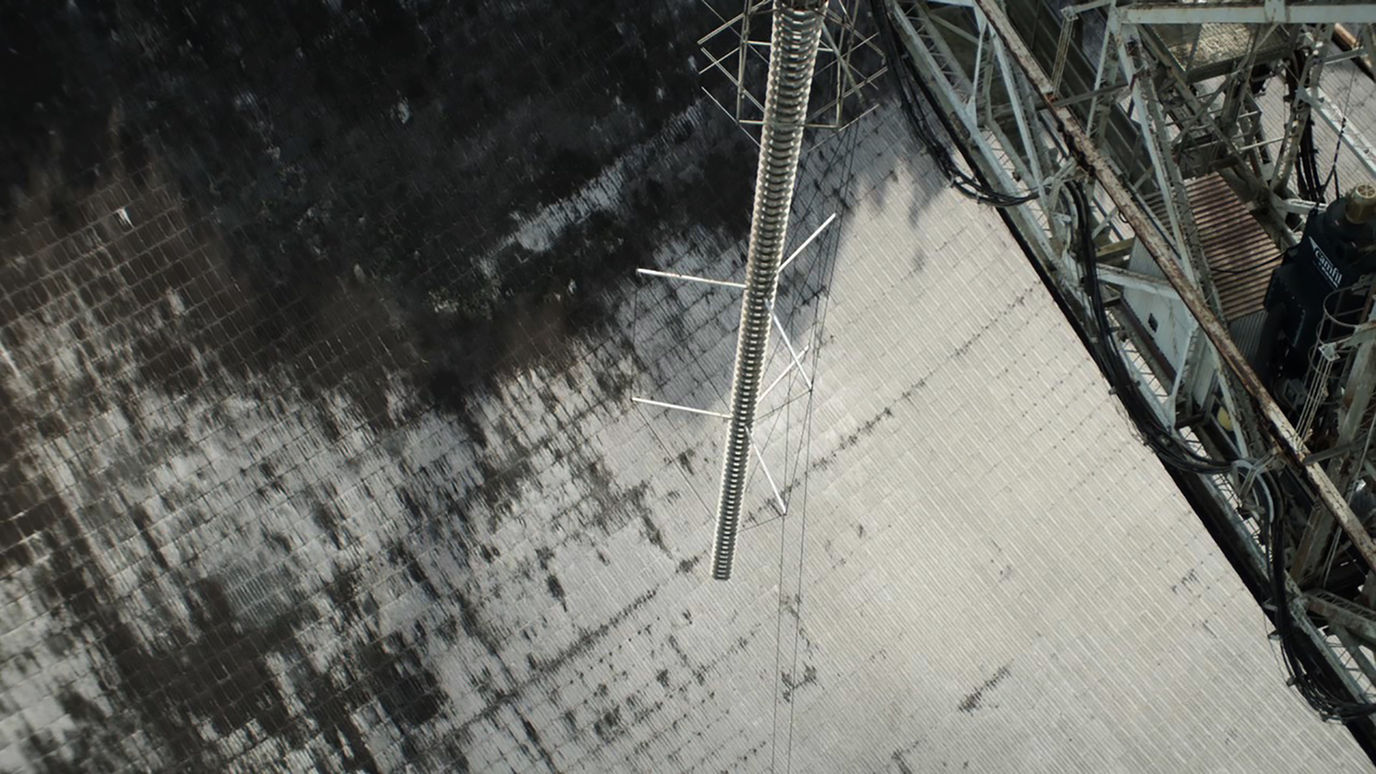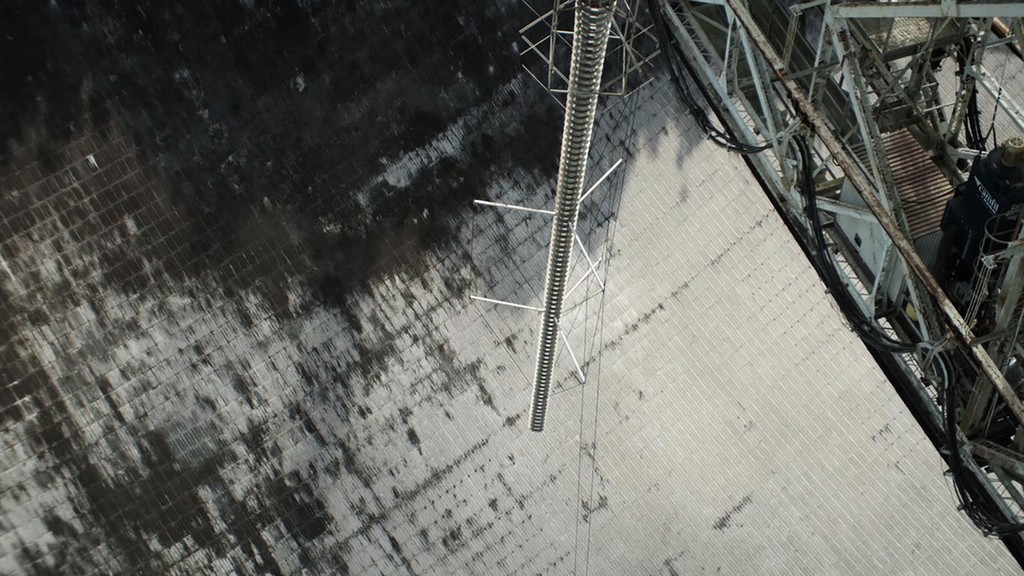“It’s no coincidence that “aspiration” means both hope and the act of breathing.”
“The Great Silence” (2015) Exhalation by Ted Chiang
The saddest science fiction story I’ve ever read is like four or five printed pages long, and you can read it for free online. It’s not really fiction; the author, Ted Chiang, describes it as a “fable,” and it was written to accompany a video installation by the artists Allora & Cazadilla, which you can also watch here.
The Great Silence is a true story about the world’s largest single-aperture telescope (at the time of writing), and its search for extra-terrestrial life. At the beginning of this story, the narrator points out the irony of the existence of a telescope “capable of hearing across the universe,” situated in the center of the habitat of the endangered Amazona vittata parrots. The narrator is one of these parrots, a member of a species uniquely capable of listening to, understanding, and speaking with humans. The parrot asks: would we understand the voices in the stars if humans can’t recognize the voices on earth?
Nature is science fiction’s muse. From the Syvash in the Ukraine that inspired the Sea of Corruption in Nausicäa, to Dune’s planet Arrakis that was modeled after oil-rich deserts, sci-fi authors have looked to our own world to imagine others. Similarly, the empathy and wonder with which Ted Chiang explores nature’s relationship with humanity and science, particularly in The Great Silence, calls to mind Carl Sagan’s reverent and mournful writing on whales in Cosmos: “For most of their history, whales may have established a global communications network… their vocalizations are love songs, cast hopefully into the vastness of the deep.” (p226)
Even if you aren’t a sci-fi reader, you probably know who Ted Chiang is. In 2016, Denis Villeneuve of Dune (2021) fame adapted Chiang’s Stories of Your Life into the Hollywood blockbuster Arrival. But Chiang’s stories generally don’t lend themselves to the big screen, and his shorts are nothing like the bleak thought-experiments conducted by shows like Black Mirror. A few years back, I googled “sci-fi authors like Ted Chiang” and came across a Reddit post that confirms: there really isn’t anyone writing like him.
Although his stories explore time travel, free will, social media, and artificial intelligence – common themes within the genre – his approach is patient, and he avoids broad value judgments. Science fiction is rife with didacticism, dating back to Mary Shelley’s Frankenstein. But Ted Chiang, in his own words, “[tries] to look at both positive and negative aspects of new technology.”
For already-fans and not-yet-fans alike, here are some good Ted Chiang interviews. If you don’t know where to start with his fiction, I suggest both his collections of short stories: first Stories of your life and others, followed by Exhalation.

